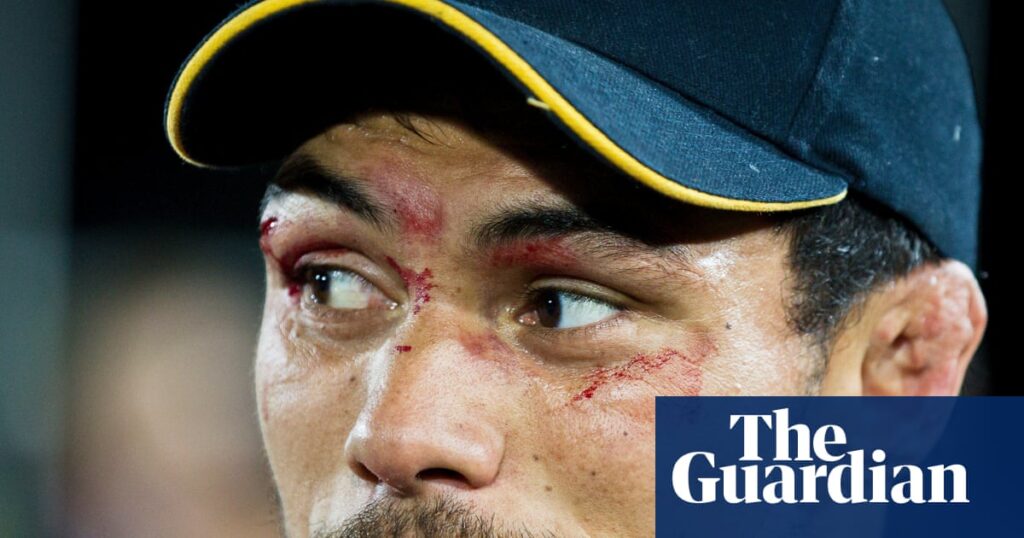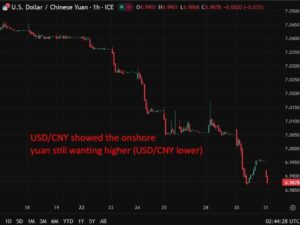
First came the headaches, a persistent feeling of pressure in the head. Then, Shane Christie, a former New Zealand rugby player, began experiencing macabre hallucinations of his own death. As time went on, the once sociable athlete found himself embroiled in arguments with loved ones, and paranoia gradually consumed his trust, leaving him fearful and depressed. By the time Christie took his own life at the age of 39 in August, ten years after his initial symptoms, he was almost unrecognizable to those who knew him best.
Holly Parkes, Christie’s former partner, cared for him during the last year of his life. She describes feeling desperate and alone as she watched Christie slip further into the illness he believed was caused by multiple head injuries. “I would get in the car, and I would cry, and I would call people… I would speak to every friend that I had … I called the brain injury trust…I was trying to speak to people in the [US], like, what do we do? How can I help him?”
Christie suspected he suffered from chronic traumatic encephalopathy (CTE), a progressive brain disease associated with repeated head impacts, which can only be diagnosed posthumously. His symptoms—fatigue, mood and personality changes, confusion, paranoia, anxiety, headaches, and suicidal thoughts—were consistent with the condition. His case has been referred to the coroner.
From the Stadium to the Shadows
Before the onset of his symptoms, Christie was a passionate rugby player. He participated in domestic competitions, Super Rugby, and represented New Zealand in the Māori All Blacks and All Blacks Sevens. To those closest to him, he was a lively, honest, and forgiving man. “He loved his friends, loved his family … was very trusting of people,” Parkes recalls. “He didn’t make his life more complicated than it needed to be. He just focused on big things.”
However, life became complicated for Christie. Throughout his career, he experienced multiple head impacts, the cumulative effects of which took a toll. In 2016, while co-captaining the Highlanders, he suffered a significant blow during a game against the Kings in South Africa. Christie was flown home and spent two weeks “alone in the dark,” unable to tolerate light, Parkes said. “He noticed big changes in himself and was already asking for help but he was being offered nothing, from anyone.”
Craig Morice, a Nelson-based lawyer and friend of Christie, first met him in 2017 when he assisted with Christie’s retirement negotiations with New Zealand Rugby (NZR) and the New Zealand Rugby Players Association. Morice recalls, “The two groups were taking their time to assist him adequately, both in respect of specialist medical care and working out what his future options were.”
It took months of pushing NZR to secure Christie a specialist neurologist appointment, which concluded that, due to the level and number of concussions he had sustained, Christie should retire from rugby immediately.
In 2018, Christie retired, citing ongoing effects of his head injuries. He expressed serious concerns about the handling of his case and the governing body’s processes for dealing with players experiencing concussion. NZR agreed to an independent review of Christie’s medical care, which was completed in 2019 but not made public, citing privacy concerns.
Advocacy and Awareness
When Billy Guyton, a rugby player and friend of Christie’s, took his own life after battling CTE in 2023, Christie’s resolve to see change deepened. He founded the Billy Guyton Foundation to highlight the risks of repeated head impacts. Morice notes that Christie saw himself in Guyton and became convinced he too was suffering from CTE. However, Guyton’s death also accelerated Christie’s decline, leading to more erratic behavior and eventually, suicidal thoughts.
Despite his decline, Christie’s messages remained clear—better support for players and retirees, and a formal acknowledgment of the link between degenerative brain diseases like CTE and rugby, as seen in the NFL in the US in 2016. In 2023, the NRL and Football Australia also acknowledged these links. However, Morice criticizes New Zealand Rugby for not acknowledging the issue, stating, “They will be on the wrong side of history on this issue, and the point is, we should be doing more for these people now.”
In response, NZR stated that player welfare was “at the heart” of its initiatives, highlighting its global efforts in concussion education and research. “We have publicly acknowledged that there is an association between repeated head impacts and CTE,” NZR stated, while emphasizing the complexity of the issue and the evolving nature of the science.
Brain Research and Legacy
At the University of Auckland’s Centre for Brain Research, researchers are examining the donated brains of over 1,000 individuals, including Christie’s, to study signs of CTE. Dr. Helen Murray, a senior research fellow, explains that while not every contact sport player will develop a brain condition, the risk is higher for those groups. Researchers are beginning to understand CTE, noting that a protein called tau overdevelops in the brain in areas of impact, forming clumps that choke off blood vessels and neural pathways.
“It looks like these big flame-shaped fibers that’s all over the cells,” Murray says. “Once it’s formed, it’s really hard to get rid of.”
Murray hopes her research will eventually inform ways to minimize the risks of developing CTE, whether through shorter sport seasons, better aftercare, or delaying contact sports for children. Christie’s loved ones hope that his final act of donating his brain to research will push his desire for CTE awareness to the forefront.
“I think people weren’t actually listening when he was trying to explain things before,” Parkes says. “But as the years go on, the things that he said in the final years of his life may become even more poignant and even more profound.”
In New Zealand, Lifeline: 0800 543 354. Suicide Crisis Helpline: 0508 828 865 / 0508 TAUTOKO (24/7). This is a service for people who may be thinking about suicide, or those who are concerned about family or friends. Depression Helpline: 0800 111 757 (24/7). In Australia, the crisis support service Lifeline is 13 11 14. In the UK and Ireland, Samaritans can be contacted on freephone 116 123, or email [email protected] or [email protected]. In the US, you can call or text the 988 Suicide & Crisis Lifeline at 988 or chat at 988lifeline.org. Other international helplines can be found at befrienders.org.






